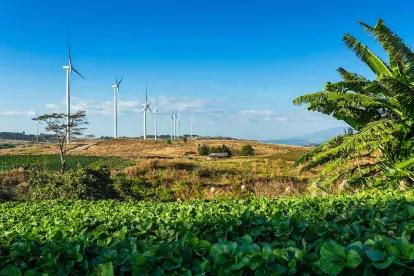In the courts, Tigo Energy – a power optimizer manufacturer headquartered in Campbell, California – filed suit earlier this month against SMA Solar Technology America LLC in the District of Delaware, alleging that SMA and its suppliers copied Tigo’s product line of module-level shutdown units and are selling products that infringe six patents owned by Tigo. In its pleading, Tigo claims that SMA copied its product line to compete in the business of offering for sale, selling, and distributing products designed to enable photovoltaic systems to comply with the rapid shutdown requirements of National Electric Code § 690.12. SMA indicates on its website that its power solutions couple a proprietary ShadeFix technology with a SunSpec-certified shutdown device to produce more power. SunSpec certification concerns a body of standards for enabling solar PV and energy storage systems to interoperate transparently with system components, software applications, financial systems, and the smart grid. See https://sunspec.org/certification/. The litigation is in its early stages, and we’ll continue to track its progress and report on significant developments.
At the US Patent and Trademark Office, the Office announced on July 21 its commitment to become a technology partner to the World Intellectual Property Organization’s (“WIPO”) sustainability wing, called WIPO GREEN. In doing so, the Patent Office joins ten (10) other IP offices from around the globe. The USPTO’s contributions to WIPO GREEN include its own initiatives designed to address the challenge of climate change, including:
-
The USPTO Climate Change Mitigation Pilot Program, which accelerates the examination of patent applications involving innovations to reduce greenhouse gas emissions.
-
The soon-to-be-announced Patents for Humanity: Clean Energy Technologies awards competition, a green technology–focused version of the USPTO’s highly successful Patents for Humanity awards competition.
In US patent news, Meta Materials Inc. – a developer of high-performance functional materials and nanocomposites – announced on July 18 that it was issued two new patents on its nanoporous lithium-ion battery technology. US Patent No. 11,387,521 issued from the Patent Office on July 12, 2022 and is directed to an advanced nanoporous separator for lithium-ion batteries, which according to Meta, “has far superior safety properties such as better heat conductivity and non-shrinkage compared to conventional separators currently used in lithium-ion batteries.” US Patent No. 11,387,523 issued on July 12, 2022, and is directed to a new generation lithium-ion battery in which the cathode is directly coated onto the separator. Meta claims that this “technology reduces the complexity and expense of the equipment used to fabricate the battery, for flat and prismatic batteries that can be used, for example, in electric vehicles.” See https://metamaterial.com/meta-materials-granted-two-new-u-s-patents-for-next-generation-battery-separators/.




 />i
/>i
